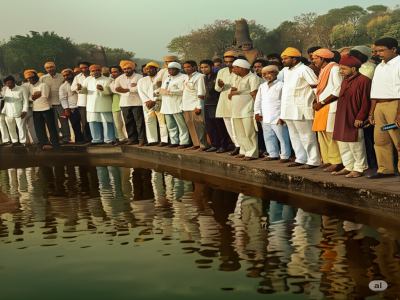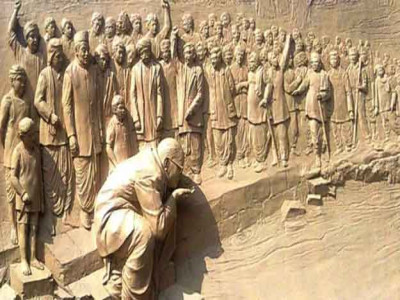Recent Blog
-

Mahad Satyagraha & Non-Violent Revolution
- 23 July 2025

In the chronicles of India's fight for justice, few events are as symbolically powerful as the Mahad Satyagraha of 1927. Led by Dr. Babasaheb Ambedkar, this historic act was not only a demand for a basic human right—access to water—but also a radical assertion of dignity, equality, and social justice. Nearly a century later, the Mahad Satyagraha continues to resonate across movements fighting systemic injustice around the world. It remains a powerful reminder that non-violent resistance is not passive—it is a courageous, deliberate, and transformative force for change.
On 20th March 1927, in the town of Mahad in Maharashtra, Dr. Ambedkar led thousands of Dalits in a non-violent protest to drink water from the public Chavdar Tank, a right denied to them due to caste-based discrimination. The act was simple but revolutionary—it challenged centuries of untouchability and exposed the brutal inhumanity of caste hierarchies.
Dr. Ambedkar made it clear: "This struggle is not for water. This is a struggle for human rights." The Mahad Satyagraha was not just about physical access—it was about moral ownership of public space, social equality, and human dignity. It ignited a movement that questioned the very foundations of caste oppression and called for the annihilation of untouchability.
While Mahatma Gandhi popularized satyagraha in the freedom struggle, Dr. Ambedkar’s non-violent revolution was distinct—it directly targeted social and structural inequalities, not just colonial rule. His approach demonstrated that non-violence is not silence, but a deliberate act of resistance rooted in reason, rights, and constitutional morality.
In Mahad, Dalits did not pick up arms or retaliate with hatred. They responded to violence and humiliation with courage, organization, and discipline. This act of civil disobedience set a global example of how oppressed communities can demand justice without replicating the violence they face.
Nearly 100 years later, caste discrimination persists in both visible and invisible forms—in education, employment, housing, digital spaces, and even access to public goods. The lessons from Mahad remain critically relevant. As marginalized communities across India and the world continue to face discrimination based on caste, race, class, gender, and religion, the spirit of non-violent revolution is more urgent than ever.
In a time of rising authoritarianism, communal divisions, and digital hate, peaceful collective action is a moral necessity. Non-violence today means more than avoiding physical conflict—it means standing against exclusionary policies, institutional discrimination, and economic inequality through education, mobilization, and constitutional activism.
As we approach the centenary of Mahad Satyagraha in 2027, there is a growing call to recognize March 20th as "World Revolution Day"—a day to honor peaceful struggles against oppression, not just in India but globally. From Black Lives Matter in the U.S. to indigenous resistance in Latin America, from Dalit rights in India to Rohingya voices in Myanmar—people across the world are drawing from the legacy of movements like Mahad to demand change.
The Ambedkarite vision of liberty, equality, fraternity, and justice offers a universal framework for dismantling systems of hierarchy and violence. The Samta Satyagraha Parishad being planned in Mahad in 2027 will bring together activists, scholars, and movements from across the globe to reimagine a world built on non-violent solidarity.